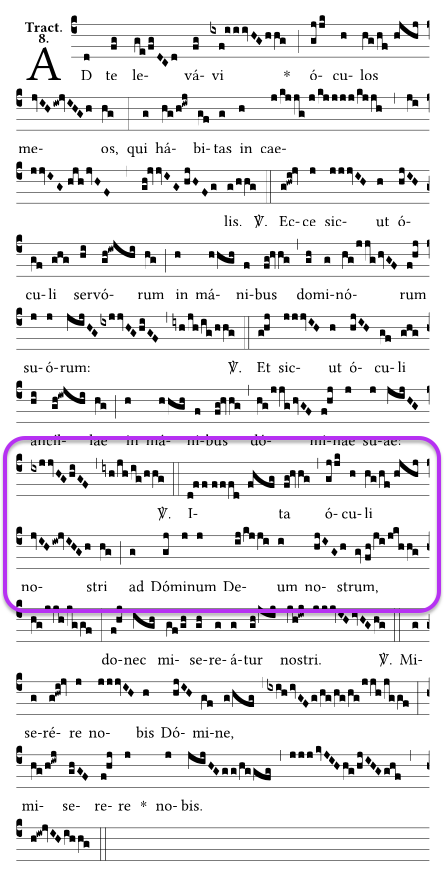Psalm 123 • Our eyes are fixed on the Lord
This coming week’s psalm is Psalm 123, “Our eyes are fixed on the Lord, pleading for His mercy.” First the full text:
R. (2cd) Our eyes are fixed on the Lord, pleading for his mercy.
To you I lift up my eyes
Who are enthroned in heaven —
As the eyes of servants
are on the hands of their masters.
R. Our eyes are fixed on the Lord, pleading for his mercy.
As the eyes of a maid
are on the hands of her mistress,
So are our eyes on the LORD, our God,
till He have pity on us.
R. Our eyes are fixed on the Lord, pleading for his mercy.
Have pity on us, O LORD, have pity on us,
for we are more than sated with contempt;
our souls are more than sated
with the mockery of the arrogant,
with the contempt of the proud.
R. Our eyes are fixed on the Lord, pleading for his mercy.
This is a very striking psalm in that it is strangely penitential for ordinary time, and it draws such a clear delineation between us and God. We are lowly and have to look to Him as servants look to their masters.
I based this week’s setting on the Tract Ad te levavi oculos meos which quotes the same psalm text as the refrain in the third versicle:
While the engraved version of my psalm only shows how the refrain relates to this gregorian melody, the verses also take their inspiration from the melody of “ad Dominum deum nostrum” and are set in a style reminiscent of a psalm tone of the Divine Office, which you can see if you compare the image above to the one below.
Once again, I’ve found that taking my inspiration directly from plainchant resulted in a setting that I could have never conceived of on my own. The resulting harmonies are a little peculiar and while this is largely a function of the natural contour of the melody, I did use some of my latitude as a composer deliberately (and, I hope, to good effect).
Starting in C minor, we find ourselves suddenly on a major flat 2 chord (Db major) on the word “Lord”. This motion is unusual by most standards, but it makes sense to draw our attention to the word “Lord” since the psalm is all about paying attention to Him. This harmonic motion is also a hopeful-sounding ascent (scale degree 1→2 and minor to major) just as one day we hope to ascend to Him.
However there is more text painting in the refrain: take for instance the melody on the word “pleading” and then the sudden shift on the word “mercy”. “Pleading” strikes the ear almost as a cry or a wailing, followed by a mode shift on the word “mercy” with a sudden resolution to a major chord at the cadence: a hopeful harmony (major triad) to represent the Lord’s perpetual mercy. Our Lord is never to be outdone in His mercy and we always have reason to hope in Him.
I hope you enjoy the final result:


